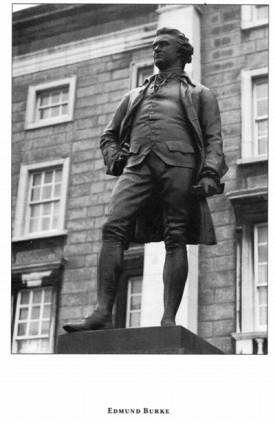Friday Roundup, March 15th
- The current Liberty Law Talk is with Amity Shlaes on Calvin Coolidge. There are many impressive elements in Shlaes’ new biography of the thirtieth president. Of note is Coolidge’s discipline and refusal to place tax dollars at the service of numerous projects: agriculture, pensions, public works, etc. Federal coffers were flush, why not spend it, many asked? Coolidge frequently chose the pocket veto to say no to them. He vetoed over 50 bills while in office. So Ronald Reagan is adored by advocates of limited government, but it was Coolidge who actually cut the government, halved tax rates and didn’t spend the increased revenue (yes, they understood the Laffer curve in the 20s), vetoed attempts that would have had federal policy direct agricultural markets, and presided over an economy that grew at an annual 3-4% clip.
- What does it mean for federal and state governments to be neutral toward religion? When does neutrality actually operate more like exclusion of citizens with views informed and shaped by religion? These are the questions considered in our featured review of Andrew Koppelman’s Defending American Religious Neutrality.
- David Henderson at Econ Log considers inflation in our current conditions.
- Is the CFPB legal? That’s the question Congressman Jeb Hensarling, Chairman of the House Financial Services Committee is asking Ben Bernanke. As Todd Zywicki notes, “the argument is straightforward in light of Noel Canning: “As you know, the Dodd-Frank Wall Street Reform and Consumer Protection Act… authorizes the Board to transfer funds to carry out the authorities of the CFPB only at the request of its director. Because it appears there is not presently a validly-appointed director of the CFPB, I question the circumstances under which the Board may lawfully fund the CFPB’s operations.”
- We should remember Edmund Burke, a tremendous Irishman, on this St. Patrick’s Day weekend. Burke’s Reflections on the Revolution in France, among his other contributions, serves as a preeminent warning to the enthusiasts of so many ideological stripes. Those who are convinced that their understanding of liberty, equality, and virtue is so perfect that our past inheritances of citizenship, patriotism, religion and morality “with the solidity of property; with peace and order; with civil and social manners” can so easily be dispensed with would do well to keep his Reflections close by in such fervent moments:
When I see the spirit of liberty in action, I see a strong principle at work; and this, for a while, is all I can possibly know of it. The wild gas, the fixed air, is plainly broke loose: but we ought to suspend our judgment until the first effervescence is a little subsided, till the liquor is cleared, and until we see something deeper than the agitation of a troubled and frothy surface. I must be tolerably sure, before I venture publicly to congratulate men upon a blessing, that they have really received one. Flattery corrupts both the receiver and the giver; and adulation is not of more service to the people than to kings. I should therefore suspend my congratulations on the new liberty of France, until I was informed how it had been combined with government; with public force; with the discipline and obedience of armies; with the collection of an effective and well-distributed revenue; with morality and religion; with the solidity of property; with peace and order; with civil and social manners. All these (in their way) are good things too; and, without them, liberty is not a benefit whilst it lasts, and is not likely to continue long. The effect of liberty to individuals is, that they may do what they please: we ought to see what it will please them to do, before we risque congratulations, which may be soon turned into complaints. Prudence would dictate this in the case of separate insulated private men; but liberty, when men act in bodies, is power. Considerate people, before they declare themselves, will observe the use which is made of power; and particularly of so trying a thing as new power in new persons, of whose principles, tempers, and dispositions, they have little or no experience, and in situations where those who appear the most stirring in the scene may possibly not be the real movers.
- Corrupted! Oh Happy Day, Chavez’s body will not be fit for eternal public display. Of course, David Conway’s earlier piece on Lenin’s remains informs us that the Venezuelans have been spared tremendously by this bit of incompetence. This assumes that it was incompetence and not a benevolent oversight.
- Paul Rahe on the new heretics and their tenured Torquemadas.

